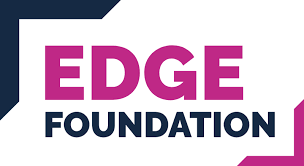‘Spelling It Out, Making It Count’ investigates the current state of Functional Skills Qualifications (FSQs) in English and maths in the UK following their reform in 2019. Conducted by the Association of Employment and Learning Providers (AELP) with additional research from Warwick University Institute of Employment Research and the Association of Colleges, and supported by the Gatsby Foundation and the Edge Foundation, research explores whether FSQs are still serving their intended purpose as practical, real-world alternatives to GCSEs that focus on developing essential life and work skills.
Through interviews, focus groups, and detailed analysis of FSQ content, performance, and costs, the research uncovered several issues:
- Pass rates for FSQs have fallen significantly in recent years, despite the difficulty of exams remaining largely unchanged. This appears linked to reduced contextualization of exam questions.
- Funding rates for FSQs have remained static since 2014 and are now insufficient to cover delivery costs, forcing providers to operate at a loss. For FSQs taken within apprenticeships, the financial burden can be as high as £440 per qualification.
- The mandatory requirement for apprentices to pass Level 2 FSQs, despite failure to do so not necessarily reflecting deficiencies in applied skills, continues to hinder apprenticeship completion rates and will hamper government efforts to raise achievement rates from 52% to 67%.
To remedy these issues, the report makes 7 key recommendations, including:
- Maintaining the applied, real-world focus of FSQs to differentiate them from GCSEs
- Increasing contextualization of exam questions
- Reviewing maths exam structure and breadth of topics
- Promoting diverse assessment methods beyond exams
- Incorporating FSQ training within apprenticeship off-the-job hours
- Reconsidering FSQs as a mandatory exit requirement for apprenticeships
- Uplifting FSQ funding immediately by at least 10% to cover delivery costs

